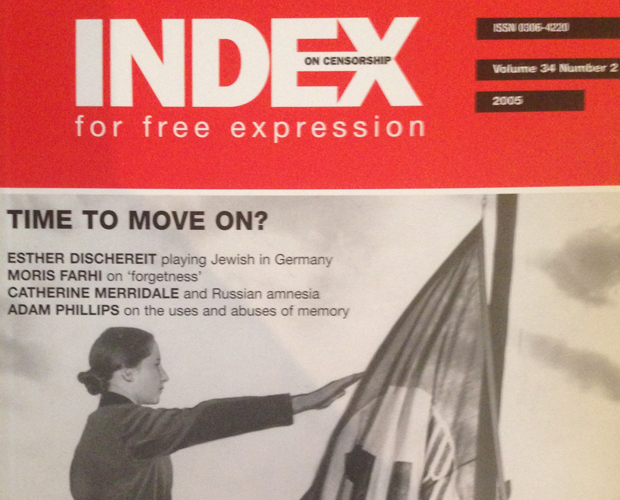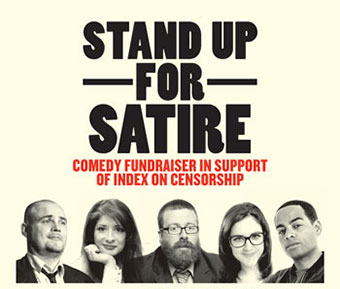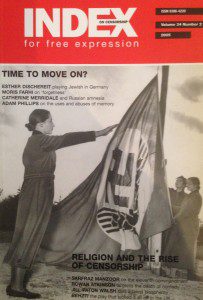21 Feb 2025 | News and features, United Kingdom
In a recent article in Byline Times, Neal Lawson the executive director of Compass, a “good society” cross-party campaign group, asked why the UK government couldn’t just ban lying in politics. This followed a recent commitment by the Welsh Senedd to do just that, before elections in 2026.
Whether it’s Donald Trump in the USA, or Reform party candidates in the UK, right-wing and far-right politicians have been responsible for a surging problem of online disinformation that deepens societal divisions and spreads distrust, in service of their political goals. As an academic expert on information warfare and propaganda, whose parliamentary evidence submissions played a central role alongside journalists and whistleblowers in 2018 in exposing the Cambridge Analytica and Facebook scandal, I too would be happy if politicians would just stop lying. But a ban like this is not the solution – below are my five reasons why.
Difficulties of enforcement
A ban on lying would be difficult to enforce, after all, who would decide what exactly “truth” is, or which “untruth” was deliberate? Whoever has this role would hold far too great a power over political speech. Deciding “truth” could rely on public fact-checkers – but while excellent, these are not infallible. Although some researchers are trying, the intent to deceive is notoriously difficult to reliably and consistently infer.
Implications for speech and abuse
Should the UK parliament implement such a ban, then the threat of being removed from office, barred from re-standing, or convicted of a new criminal offence of deception could result in good politicians becoming overly cautious and policing their own speech. Right now, more than ever, the public needs to see brave and bold politicians who speak their minds in the face of authoritarian arguments, lies and corruption. Such sanctions could create a pressure that is similar to the one that makes a well-meaning press fearful of libel laws and SLAPPs (Strategic Lawsuits Against Public Participation) – these are weaponised by authoritarians and corrupt oligarchs to silence criticism. Banning lying in parliament could just as easily be abused by any future government in order to censor.
Parliament’s role in public debate
Flawed as it may be, in a democracy we work out our issues through public discourse, with a key role played by the media and an adversarial system of parliamentary politics.
Parliament is a forum in which, through evidence and protected speech, voters not only see political issues and policy debated, but also witness the exposure of deceptive politicians bearing bad policies, who they then have the power to vote out. While politicians frequently fail to live up to this ideal, they still play a key role in exposing and challenging the motives of their opponents.
We might not like politicians lying, but stopping lies in parliament won’t stop them elsewhere. We need wannabe demagogues to be able to lie in parliament – in order for these lies to be demolished in public view, through intelligent and compelling argument. We need leaders who model how people can challenge these arguments. This leads and shapes UK political culture and is surely what democracy needs right now. It shows the public the worst and best of what our politicians represent and the capacity to do this builds trust in democratic processes.
Importantly, it also focuses the media on parliament as the centre of political life and shows that politicians are responding to and explaining their position on debates that – like it or not – voters are seeing anyway in the media they consume.
Do we really want politicians to hide behind rhetoric and sleight of hand in parliament, while lies are fed copiously through the media, online campaigns and influencers? Forcing lies out of parliament would disengage parliament from taking on debates in British communities they need to meet head on. The resulting disengagement could change the role politicians play in wider British political life and increase perceptions of their irrelevance and elitism.
Increased media toxicity and polarisation
While politicians themselves may be neutered in the Commons, this won’t stop them and their parties feeding the toxic online discourse. It is a bad idea to leave the dismantling of political lies to journalists alone, given the current financial threats to journalism and growing dominance of social media as a provider of political information.
If populist politicians lie in parliament and face sanctions, they will embrace the opportunity to portray themselves as “martyrs”, suffering “censorship”. They will exploit this in the manner that we have seen modelled in the USA by President Trump and his supporters. Ironically, this could degrade trust in the very institutions of democracy that policymakers are trying to protect.
The colleagues of sanctioned politicians would join in their rallying cry, referring to banned speech, and indeed opinions of parliamentary censorship could hardly be labelled as disinformation – since censorship of a kind would truthfully have occurred.
This would give substantial power to small populist parties to hijack political debate both within parliament over the issue of censorship and beyond it. “Approved” political debate would be portrayed as “elite controlled”. And the implications for public trust in political process would be profound.
This could drive an even more toxic media and online environment than the one we are already facing. Research shows that most people don’t share falsehoods – this behaviour is a feature of declining trust in political systems, and resonance with underlying identities and belief systems. As the public lose faith in parliament, they would be targeted by alternative outlets and social media influencers branded as “uncensored” who push anti-government conspiracy theories while saying they present “evidence” that reveals democratic institutions as corrupt and the system as “rigged”.
Furthermore, a move of this kind could cause others to drop their guard. Importantly, the easily disprovable outright lies a ban might be narrowly applied to, are not the only or even the main way to mislead and manipulate people in politics. After President Trump’s inauguration, much of the US media were too cowardly to describe what most recognised as a Nazi salute by Elon Musk, with the Washington Post referring instead to a “straight-arm gesture”. As with this example, words can be technically accurate while denying an important truth. Building a misleading sense that parliamentary discourse is now de facto trustworthy among voters could reduce necessary scrutiny, scepticism and critical engagement among some voters.
Potentially, this could reinforce polarisation of British society, as urban, educated, middle class, educated voters’ faith in the system is confirmed, while others retreat further from trust in the political system. It fails to deal with the wider problem of propaganda outside parliament for which governments, politicians and private industries share responsibility. Banning lies is a simplistic solution that will miss the majority of attempts to hoodwink, manipulate and deceive voters with propaganda. It doesn’t address the Big Tech coup against our online environment or problems in journalism.
Banning lies attempts to solve the wrong problem
There is an important flaw underlying the logic of a ban on lying. It rests on the assumption that the problem at hand is simply the presence of falsehoods. Politicians have always lied. What this ban fails to consider is the fact that often people are voting for authoritarians or sharing lies in spite of knowing they are false or misleading. In the USA case, the problem isn’t necessarily that all Trump voters believe everything he says is factual. Some Trump voters like the lying, care more about “authenticity” or feel that, while inaccurate, the “gist” of his claims articulates a deeper cultural truth.
Muting obvious falsehoods within parliament would give the pretence of increased democratic norms and civility, but lies will continue online and it won’t stop the larger cultural narratives within which these lies are implicitly expressed by politicians. Banning lying in parliament would not stop upcoming demagogues deceiving or sharing a brutal, racist, fascist ideology. It will just make it harder for politicians to directly call out and counter the implicit deceptions that remain unspoken within their colleague’s argument.
People reveal their true selves in their deception and the public need to see them do it. Today we are fighting an ideology of fascism, not simply “lies”. This is why we need a bigger discussion about challenging propaganda, fighting fascism and reforming our communication system – not just silencing the most obvious and easily disproven lies expressed within parliament and providing more fuel for the conspiracy machine.
26 Oct 2022 | Hong Kong, Jimmy Lai, News and features, Political prisoners

Jimmy Lai attends a candlelight vigil to mark the 31st anniversary of the crackdown of pro-democracy protests at Beijing’s Tiananmen Square in 1989. Photo: Tyrone Siu/Reuters/Alamy
The conviction of Jimmy Lai yesterday on the trumped-up charges of fraud serve a very specific purpose – discredit the 74-year-old Hong Kong media mogul and activist ahead of his National Security trial in December. So said Caoilfhionn Gallagher KC, who is part of Lai’s international legal team at Doughty Street Chambers.
Gallagher was speaking on a panel held on Monday ahead of the trial to discuss Lai, who has been imprisoned in Hong Kong since 2020. The panel took place at the House of Lords and was chaired by veteran journalist John Simpson. The event was hosted by Baroness Helena Kennedy KC. Rebecca Vincent from Reporters Without Borders (RSF) and the last Governor General of Hong Kong, Lord Patten of Barnes, were also on the panel.
Simpson, describing Lai as a personal friend, introduced the event and acknowledged Lai’s personal wealth, pointing out it would have been easier for Lai to have used his money to escape rather than to “face the music”.
Reading a speech from Lai’s son, Simpson quoted Sebastian Lai when saying the CCP “had to corrupt the Hong Kong justice system, twisting it and bending it to fit their whims. So today, I call on the UK government to protect him and secure his freedom.”
This was a strong theme of the debate. While Iain Duncan Smith and Chris Bryant – two prominent MPs from different ends of the parliamentary political spectrum – were present, there was a general feeling that the British government had to do more to help a British citizen unfairly imprisoned abroad, and there had to be more awareness.
Despite acknowledging the help of the Foreign Office and Civil Service, Gallagher feels the previous and current Foreign Secretary ignored the plight of Lai. She said: “We haven’t met Liz Truss or James Cleverly, despite asking to. Whoever is the Foreign Secretary needs to engage with us and make this a political priority. People need to be shouting from the rooftops about this case.”
Patten stated his admiration for Lai, saying: “I hope we make a fuss about him and continue to do so”. He added: “Not only is he a formidable man, but of all the things that angers the CCP is not only that he chose to stay in Hong Kong when he could have left, but that he is also emblematic of what they find so difficult to accept.”
The continued imprisonment of Jimmy Lai and his Apple Daily colleagues will have strong implications for the residents of Hong Kong, Baroness Kennedy believes. She said: “I think, at the moment, a lot of people in Hong Kong believe that these issues won’t affect them, thinking “oh, they’re only going after Jimmy Lai”.” But as Kennedy pointed out, even speaking to people who have been charged under the draconian national security law (which was passed in the summer of 2020) can see people fall foul of the law. And indeed, her wider point was echoed throughout the talk, namely that no one wants to be the frog in the pot of boiling water, not acknowledging how serious the threat is.
Rebecca Vincent said that RSF were releasing a petition to shed light on Jimmy Lai’s situation, urging the Chinese government to drop all charges against him and release Lai, and his colleagues from Apple Daily, without delay.
7 Nov 2018 | Campaigns -- Featured, Counter Terrorism, Statements, United Kingdom
[vc_row][vc_column][vc_column_text]
The Counter-Terrorism and Border Security Bill is currently being debated in the House of Lords. Index is very concerned about the bill’s impacts on freedom of expression.
Index is disappointed by the lacklustre engagement by most peers in the debate and the unwillingness of the House of Lords to challenge the bill.
While there has been little progress in the House of Lords when it comes to protecting freedom of expression in the bill, a proposed new amendment by Lord Anderson deserves support. The former Independent Reviewer of Terrorism Legislation, together with Baroness Manningham-Buller and Lords Judge and Paddick, is proposing an annual review of the list of proscribed (terrorist) organisations.
There are currently 88 proscribed organisations, including 14 in Northern Ireland. Most have been proscribed under the Terrorism Act 2000. Proscribing an organisation has severe consequences, including ones related to freedom of expression.
It is a crime to belong to – or claim that you belong to – a proscribed organisation, to invite support for a proscribed organisation or to wear clothes or carry or display articles in public in such a way or in such circumstances as to arouse reasonable suspicion that you are a member or supporter of a proscribed organisation.
The Counter-Terrorism and Border Security Bill aims to create new offences related to proscribed organisations with further restrictions on freedom of expression. For example, it would become an offence to make a statement that is “supportive” of a proscribed organisation if you do so in a way that is reckless as to whether another person is encouraged to support a proscribed organisation (Index opposes this clause).
However, the Home Office has told Lord Anderson that at least 14 proscribed organisations do not meet the conditions for proscription, because they are not “concerned in terrorism”.
An organisation that wishes to be deproscribed must apply to the Home Secretary. It is the only way for an organisation to be removed from the list. Three organisations have been deproscribed: the Peoples’ Mujaheddin of Iran in 2008, the International Sikh Youth Federation in 2016 and Hezb-e Islami Gulbuddin in 2017. The high legal costs involved, especially if it involves appealing a decision to refuse deproscription, are likely to be a significant deterrent.
During debate on the Counter-Terrorism and Border Security Bill Lord Anderson offered the case of the Irish women’s organisation Cumann na mBan as an example, pointing out that it was once aligned with the Irish Republican Army and remains proscribed despite no evidence that the organisation has been concerned in terrorism during this century at least.
Because of the far-reaching implications of proscription, including the restrictions related to freedom of expression, organisations that do not meet the conditions for proscription should not remain on the list.
The amendment proposed by Lord Anderson (amendment 59) would require the Secretary of State to review each proscribed organisation at least once every year, including determining if the organisation satisfies the conditions for proscription, publish each decision and report to Parliament.
Index urges members of the House of Lords to support this amendment.[/vc_column_text][/vc_column][/vc_row][vc_row][vc_column][vc_basic_grid post_type=”post” max_items=”4″ element_width=”6″ grid_id=”vc_gid:1541582801710-de97750c-50b3-5″ taxonomies=”27743″][/vc_column][/vc_row]
17 Jul 2015 | Magazine, mobile

Index on Censorship magazine cover, May 2005
On behalf of all those who make a living from creativity, those whose job it is to analyse, to criticise and to satirise – authors, journalists, academics, actors, politicians and comedians – I oppose the government’s proposed law of Incitement of Religious Hatred. The government claims we need have no concerns about the legislation but as the arguments both for and against the measure have evolved, I have found these reassurances to lack any logic or conviction.
First, there is the government’s belief that the measure will promote racial tolerance. Now racial tolerance may sound a pretty inarguable notion. Unfortunately, what is very arguable is the definition of the term – the definition of a tolerant society. Is a tolerant society one in which you tolerate absurdities, iniquities and injustices simply because they are being perpetrated by or in the name of a religion? Or one where out of a desire not to rock the boat you pass no comment or criticism? Or is a tolerant society one where, in the name of freedom, the tolerance that is promoted is the tolerance of occasionally hearing things you don’t want to hear? Of reading things you don’t want to read? A society in which one is encouraged to question, to criticise and if necessary to ridicule any ideas and ideals, and where the holders of those ideals have an equal right to counter-criticise, to counter-argue and to make their case? That is my idea of a tolerant society: an open and vigorous one, not one that is closed and stifled in some contrived notion of correctness.
I question, also, the ease with which the existing race hatred legislation is going to be extended simply by the scoring out of the word “racial hatred” and the insertion of “racial or religious hatred” as if race and religion are very similar ideas and we can bundle them together in one big lump. It seems clear to me and to most people that race and religion are fundamentally different concepts, requiring completely different treatment under the law. To criticise people for their race is manifestly irrational but to criticise their religion, that is a right. That is a freedom. The freedom to criticise ideas – any ideas – even if they are sincerely held beliefs, is one of the fundamental freedoms of society. A law that attempts to say you can criticise or ridicule ideas as long as they are not religious ideas is a very peculiar law indeed. It promotes the idea that there should be a right not to be offended. Yet in my view, the right to offend is far more important than any right not to be offended simply because one represents openness, the other oppression.
Third, I question the inarguable nature of the phrase “religious hatred” afforded by the use of the highly emotive word “hatred”. So I thought I would modify the name of the proposed measure by changing the terminology while retaining the meaning. The dictionary definition of the word “hatred” is “intense dislike”. Incitement of Religious Intense Dislike. Isn’t it strange how that small change makes it seem a much less desirable or necessary measure? I then found myself asking a strange question. What is wrong with encouraging intense dislike of a religion? Why shouldn’t you do so if the beliefs of that religion or the activities perpetrated in its name deserve to be intensely disliked? What if the teaching or beliefs of the religion are so outmoded, hypocritical and hateful that not expressing criticism of them would be perverse? The government claims that one would be allowed to say what one liked about beliefs because the measure is not intended to defend beliefs but believers. But I don’t see how you can distinguish between them. Beliefs are only invested with life and meaning by believers. If you attack beliefs, you are automatically attacking those who believe the beliefs. You wouldn’t need to criticise the beliefs if no one believed them.
 Index on Censorship has been publishing articles on satire by writers across the globe throughout its 43-year history. Ahead of our event, Stand Up for Satire, we published a series of archival posts from the magazine on satire and its connection with freedom of expression.
Index on Censorship has been publishing articles on satire by writers across the globe throughout its 43-year history. Ahead of our event, Stand Up for Satire, we published a series of archival posts from the magazine on satire and its connection with freedom of expression.
14 July: The power of satirical comedy in Zimbabwe by Samm Farai Monro | 17 July: How to Win Friends and Influence an Election by Rowan Atkinson | 21 July: Comfort Zones by Scott Capurro | 24 July: They shoot comedians by Jamie Garzon | 28 July: Comedy is everywhere by Milan Kundera | Student reading lists: Comedy and censorship

I also take issue with the government’s consultation process. After the initial failure to get the law passed in 2001, it engaged in a consultation process involving a House of Lords Select Committee and, I believe, another forum in which it was discussed, to arrive at a new version of the measure that was launched last autumn. What I find extraordinary is that the government is so wedded to the notion that nobody other than the most rabid fascists could possibly fall foul of this legislation that the consultation process didn’t include anyone from the creative community. Many organisations were consulted in the drafting of this legislation: religious organisations, civil liberties groups, law enforcement people; but not one writer, not one journalist, not one academic, not one television producer, theatrical producer; no actor, no comedian; basically nobody whose work might be affected by it. How weird this denial of those concerns, when the incident that most inspired those who have been seeking the introduction of this legislation was the publication of a book. And the most vociferous religious protests we have seen in Britain in the past few months have been against a play and a televised opera. Again, the government will say that these creative works are not the intended targets of this legislation but that raises two issues: first, many religious organisations think they are precisely the target and look forward to wielding their influence to bring prosecutions. If their ambitions are thwarted, there is a high risk of a violent reaction; second, the government is unable to say that creative endeavours could not possibly be targets. And the reason ministers can’t give that degree of reassurance is because creative endeavours clearly could be. Comedy could. Newspaper articles could. Theatrical plays could. The legislation is very simple, very clear and very broad.
The government is relying entirely on the wisdom of the attorney general to protect people like me. It is this discretionary nature of the legislation that is arguably the most disturbing thing about it. It allows the government to rubbish the concerns of the creative community without offering any concrete reassurances other than that the attorney general will look after you. What kind of reassurance is that? The attorney general is not an independent adjudicator. He is an instrument of government: what is politically expedient will be his guide. As the 9/11 attacks on the United States showed, the political agenda in any country can change in a matter of hours. Who’s to say what his priorities are going to be in five days’ time, or five hours’ time, or five years’ time? The government’s belief that legislation on religious hatred will work just as that on racial hatred does is optimistic in the extreme. The pressures in relation to religious hatred are going to be on a completely different scale from that for race: the spread of fundamentalism across a whole range of religions is going to make the issue politically far more highly charged.
And even if I had faith that the attorney general would bail me out in the end, what would I have to go through first? I don’t particularly want to discover that my comedy revue has not, after all, fallen foul of the legislation sitting in an interview room in Paddington Green police station. I would like to know that I could not possibly be put in that situation because of my criticism or ridicule of religious ideas and, by implication, those who follow those ideas. And we now know that even the attorney general’s judgments can be subjected to judicial review. Where would it end?
However, we have to address the issues that have driven the government to their current position. We have to sympathise and empathise with the most conspicuous promoters of this legislation, British Muslims. I appreciate that this measure is an attempt to provide comfort and protection to them but unfortunately it is a wholly inappropriate response far more likely to promote tension between communities than tolerance. The government could have worded the document to tackle a specific issue but chose not to; as a result, those caught in the crossfire are reluctantly going to have to fight to defend intellectual curiosity, the right to criticise ideas, whatever form they take, and the right to ridicule the ridiculous, in whatever context that lies. These ramifications are being denied by the government because it is politically expedient for them to do so, but I personally have been reassured by nothing I have seen, heard or read.
I don’t doubt the sincerity of those who are seeking this legislation but I do question the government’s enthusiasm for it so close to a general election, an enthusiasm that must be rooted in its belief that this measure could help its cause in some marginal constituencies with large religious populations, many of whom are critical of the government’s prosecution of the war in Iraq. It seems a shame we have to be robbed permanently of one of the pillars of freedom of expression because it’s needed temporarily to shore up a wobbling political edifice elsewhere.
Rowan Atkinson is a foremost British comedian and actor. This is the speech he gave in the Moses Room at the House of Lords on 25 January 2005
 This article is from the spring 2005 issue of Index on Censorship magazine and is part of a series of articles on satire from the Index on Censorship archives. Subscribe here, or buy a single issue. Every purchase helps fund Index on Censorship’s work around the world. For reproduction rights, please contact Index on Censorship directly, via [email protected]
This article is from the spring 2005 issue of Index on Censorship magazine and is part of a series of articles on satire from the Index on Censorship archives. Subscribe here, or buy a single issue. Every purchase helps fund Index on Censorship’s work around the world. For reproduction rights, please contact Index on Censorship directly, via [email protected]





